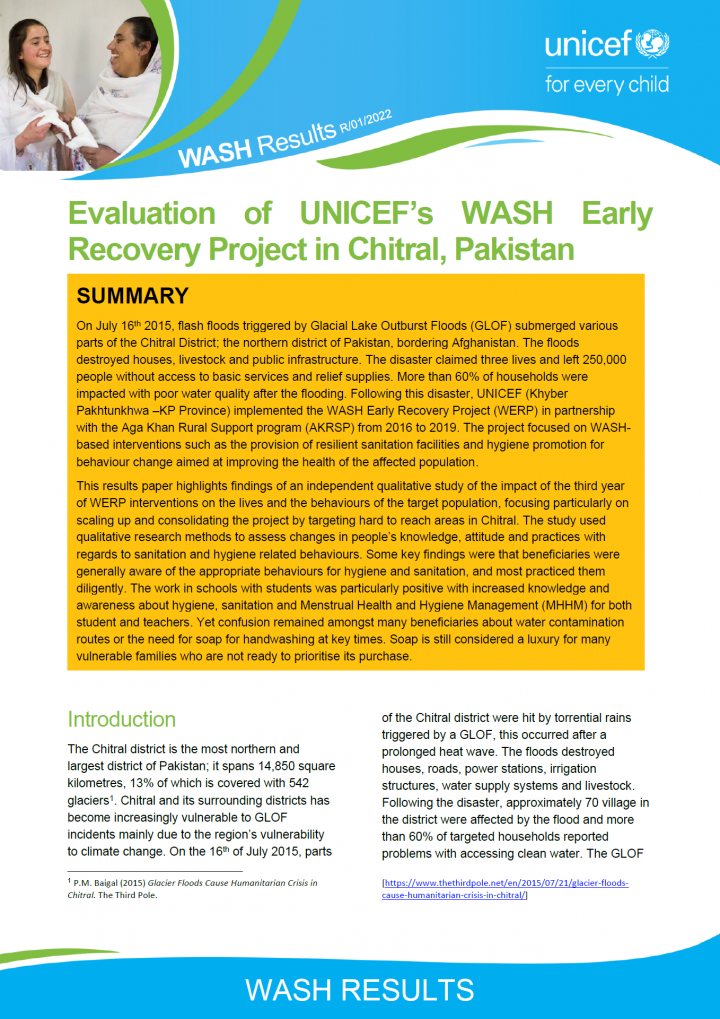
Published in: 2022
Pages: 13
Publisher:
UNICEF Regional Office South Asia
Author:
UNICEF
Uploaded by:
SuSanA Admin
Partner profile:
common upload
2445 Views
85 Downloads
On July 16th 2015, flash floods triggered by Glacial Lake Outburst Floods (GLOF) submerged various parts of the Chitral District; the northern district of Pakistan, bordering Afghanistan. The floods destroyed houses, livestock and public infrastructure. The disaster claimed three lives and left 250,000 people without access to basic services and relief supplies. More than 60% of households were impacted with poor water quality after the flooding. Following this disaster, UNICEF (Khyber Pakhtunkhwa –KP Province) implemented the WASH Early Recovery Project (WERP) in partnership with the Aga Khan Rural Support program (AKRSP) from 2016 to 2019. The project focused on WASH-based interventions such as the provision of resilient sanitation facilities and hygiene promotion for behaviour change aimed at improving the health of the affected population.
This results paper highlights findings of an independent qualitative study of the impact of the third year of WERP interventions on the lives and the behaviours of the target population, focusing particularly on scaling up and consolidating the project by targeting hard to reach areas in Chitral. The study used qualitative research methods to assess changes in people’s knowledge, attitude and practices with regards to sanitation and hygiene related behaviours. Some key findings were that beneficiaries were generally aware of the appropriate behaviours for hygiene and sanitation, and most practiced them diligently. The work in schools with students was particularly positive with increased knowledge and awareness about hygiene, sanitation and Menstrual Health and Hygiene Management (MHHM) for both student and teachers. Yet confusion remained amongst many beneficiaries about water contamination routes or the need for soap for handwashing at key times. Soap is still considered a luxury for many vulnerable families who are not ready to prioritise its purchase.
Bibliographic information
UNICEF (2022). Evaluation of UNICEF’s WASH Early Recovery Project in Chitral, Pakistan. UNICEF Regional Office South Asia
Filter tags
East Asia & Pacific English















